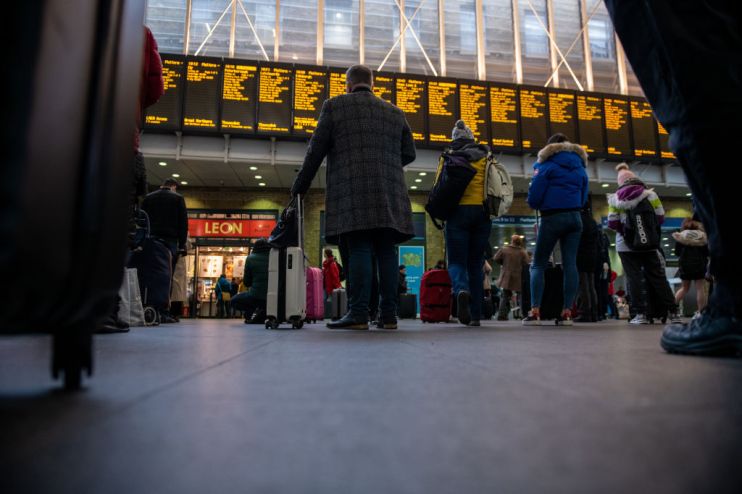Rail fares to rise above inflation for first time in eight years

Rail fares will rise above inflation for the first time in eight years next year, although the hike will be delayed until March.
The Department for Transport (DfT) announced that fares would be hiked 2.6 per cent next year, despite calls to freeze ticket prices in a bid to encourage people back onto trains after the pandemic.
Rail minister Chris Heaton-Harris said the rise was a result of “unprecedented taxpayer support” for rail this year.
TfL fares will also rise by the same amount from 1 March, after a four year freeze on fare increases.
The increase was one of the conditions of TfL’s twin bailouts by the government, although Sadiq Khan had previously said that underground fares would rise in 2021 anyway.
Commenting on the rise, Khan said he had no choice if he was to keep Tube and bus services running next year.
As a result of the coronavirus, rail passenger numbers dropped to their lowest levels in more than a century in the spring, leading the government to take rail franchises under state control.
Officials have warned that placing train firms under emergency measures could cost the taxpayer up to £10bn over the year.
A rise of 1.6 per cent – in line with inflation – had been expected, but ministers were quick to point out that the rise was lower in actual terms than for the last four years.
Before the Open newsletter: Start your day with the City View podcast and key market data
Heaton-Harris said: “By setting fares sensibly, and with the lowest actual increase for four years, we are ensuring that taxpayers are not overburdened for their unprecedented contribution, ensuring investment is focused on keeping vital services running and protecting frontline jobs.”
The chief executive of the Campaign for Better Transport group said that the rise was a “bitter disappointment”.
Paul Tuohy said: “We are bitterly disappointed the Government has chosen to raise fares just as people will be returning to workplaces next year.
“The Government is committed to decarbonising transport, yet this rise will do nothing to encourage people to choose the train or help the green economic recovery the country so desperately needs.
“We understand that the Treasury needs to recoup some of the money it has spent on the railway during the pandemic, but the way to do that is by encouraging passengers back onto the trains, not by pricing them off. Raising rail fares sends entirely the wrong message on transport choices.”